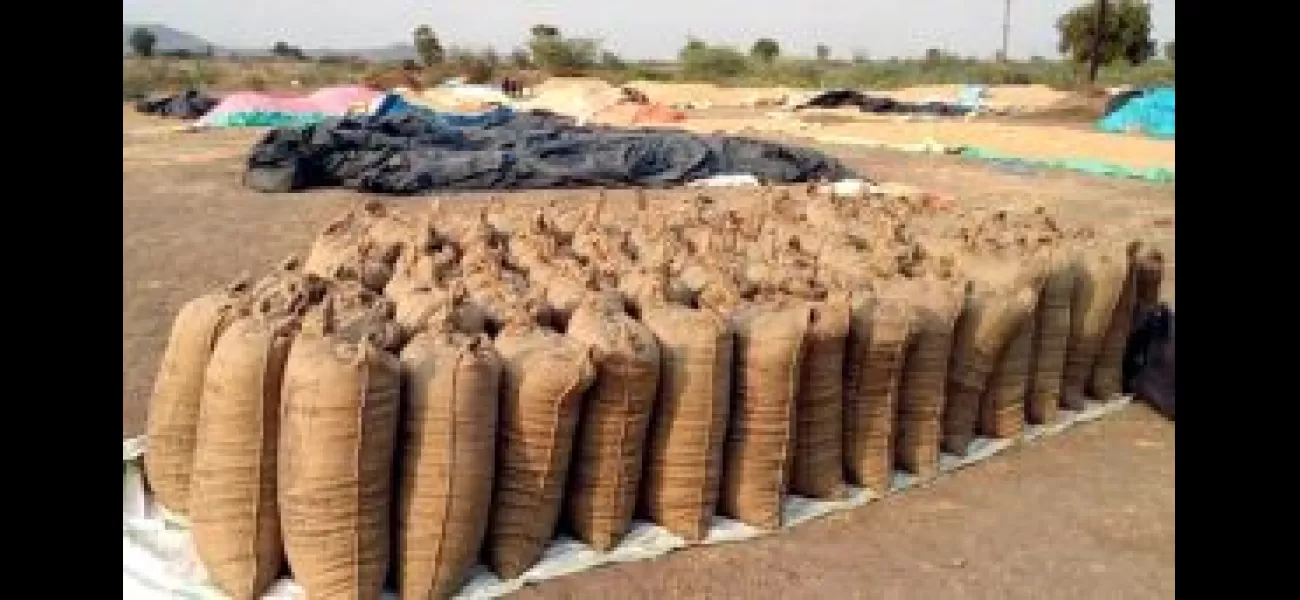Government has increased the minimum support price (MSP) for paddy by Rs 117 to Rs 2,300 per quintal for the year 2024-25.
Govt increases paddy MSP by 5.35% to Rs 2,300/quintal for 2024-25 kharif season, despite surplus stocks; important before state elections.
June 19th 2024.

The Indian government has recently made a significant decision that is bound to have an impact on the agricultural sector. In a recent announcement, the minimum support price for paddy has been increased by 5.35 per cent to Rs 2,300 per quintal for the upcoming kharif marketing season of 2024-25. This decision has been made after careful consideration and based on the recommendations from the Commission for Agricultural Costs and Prices. The hike in paddy support price has been made despite the government having surplus rice stocks. However, it holds great significance ahead of elections in states like Haryana, Maharashtra, Jharkhand, and Delhi.
Information and Broadcasting Minister Ashwini Vaishnaw revealed that the cabinet has approved the minimum support prices for 14 kharif crops, including paddy. The price for the 'common' grade paddy has been increased by Rs 117 to Rs 2,300 per quintal, while the 'A' grade variety has been hiked to Rs 2,320 per quintal. This marks the first cabinet decision taken in Prime Minister Narendra Modi's third term in office, making it a significant move.
Speaking about the decision, Vaishnaw mentioned that the government had a clear policy decision in the 2018 Union Budget that the minimum support price should be at least 1.5 times the cost of production. This principle was followed while determining the latest MSP hike, which was scientifically calculated by CACP. It is a positive step towards ensuring fair prices for farmers and promoting the growth of the agricultural sector.
It is worth noting that the Food Corporation of India currently holds a record stockpile of around 53.4 million tonnes of rice, which is four times the required buffer for July 1. This is sufficient to meet the demand under welfare schemes for one year without any fresh procurement. Furthermore, despite lower rainfall across the country since the start of the monsoon season, the meteorological department has stated that weather conditions are now favorable for further advancement of the rains. This brings hope for a successful kharif season and a positive impact on the agricultural sector.
Information and Broadcasting Minister Ashwini Vaishnaw revealed that the cabinet has approved the minimum support prices for 14 kharif crops, including paddy. The price for the 'common' grade paddy has been increased by Rs 117 to Rs 2,300 per quintal, while the 'A' grade variety has been hiked to Rs 2,320 per quintal. This marks the first cabinet decision taken in Prime Minister Narendra Modi's third term in office, making it a significant move.
Speaking about the decision, Vaishnaw mentioned that the government had a clear policy decision in the 2018 Union Budget that the minimum support price should be at least 1.5 times the cost of production. This principle was followed while determining the latest MSP hike, which was scientifically calculated by CACP. It is a positive step towards ensuring fair prices for farmers and promoting the growth of the agricultural sector.
It is worth noting that the Food Corporation of India currently holds a record stockpile of around 53.4 million tonnes of rice, which is four times the required buffer for July 1. This is sufficient to meet the demand under welfare schemes for one year without any fresh procurement. Furthermore, despite lower rainfall across the country since the start of the monsoon season, the meteorological department has stated that weather conditions are now favorable for further advancement of the rains. This brings hope for a successful kharif season and a positive impact on the agricultural sector.
[This article has been trending online recently and has been generated with AI. Your feed is customized.]
[Generative AI is experimental.]
0
0
Submit Comment





